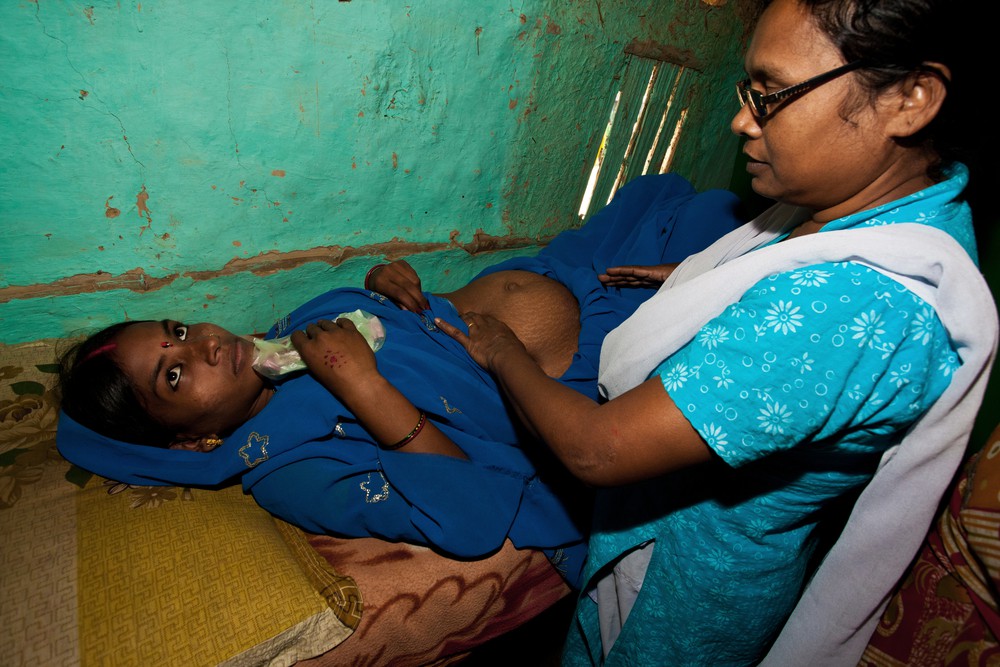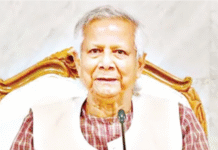
By Anonymous on Jan 07, 2021 Benar News
Healthcare facilities in rural Bangladesh have been denying care to many pregnant women over fears they might be infected with the novel coronavirus or because doctors themselves have COVID-19, according to clinical data and new mothers in one such area.
Healthcare providers prefer to turn away pregnant women who seek care because rural hospitals have to send patients’ COVID-19 nasal swabs to labs located dozens of miles away, and then wait for days for results, said the head of health services for Satkhira district in southwestern Bangladesh.
This could lead to a rise in maternal and infant mortality because expectant mothers would be left with no choice but to turn to village quacks and untrained midwives, health experts said.
While he acknowledged that hospitals may have been refusing care to pregnant women at the beginning of the pandemic, Bangladeshi Health Minister Zahid Maleque said they were not doing so anymore.
“The situation in hospitals is not like what it was in the beginning. However, now, many patients are afraid of coming to the hospital,” he told BenarNews.
The central government has already begun setting up more laboratories in all districts and has warned hospitals of strict action against them if they refuse to treat patients – particularly women who are pregnant – Maleque said.
“If pregnant women are being deprived of treatment, it is very sad. We will take action if any complaint is received. The government has instructed all hospitals and clinics in the country to treat all types of patients, especially pregnant women.”
‘My baby started turning blue’
Taslima Khatun, 20, a resident of Shyamnagar sub-district, said she suffered genital injuries while giving birth to her first child with the help of a village midwife in October.
“I was becoming a mother for the first time. I wanted the delivery to be done at the hospital, but I was not admitted because I had a cold and a cough. I didn’t have a negative COVID-19 certificate because the test was not available near where I live,” Khatun told BenarNews.
Another Shyamnagar resident, Ismat Ara, 22, suffered throughout her pregnancy and came close to losing her baby on the day she delivered.
“I traveled about 10-12 km [6-7 miles] to see a doctor at Shyamnagar Upazila Hospital. But the doctors there were infected with the coronavirus and I could not see them. I had various problems, including swollen legs and abdominal pain,” Ara told BenarNews.
She came down with a cold as her delivery date approached. This time around, hospitals refused to admit Ara because, she recalled, personnel there feared that she may be infected by the coronavirus.
She turned to a midwife in her village.
“My baby started turning blue right after he was born. Luckily his grandmother didn’t have a cold or cough and she managed to rush to a clinic 14 kilometers [8-9 miles] away and my baby survived,” Ara said.
“Lucky,” is how Jannatun Khatun, 17, described her delivery. She did not get any care from the hospital for the same reasons as Ara, but she managed to be admitted to a hospital for delivery.
Her baby boy needed oxygen support as soon as he was born.
“I could not have saved my child if he had been delivered by a midwife in the village,” Jannatun told BenarNews.
At the best of times, medical care for expectant mothers in rural and remote areas is just passable, said Atiq Ahsan, an anthropologist with years of experience doing fieldwork in Bangladesh’s hinterlands.
“As it is, we have fewer gynecologists in the countryside. For this reason, pregnant women in remote areas suffer a lot. Due to COVID-19, the situation has deteriorated further. It has increased the risk of maternal and child death,” Ahsan told BenarNews.
Regular check-ups during pregnancy are a must because pre-natal care helps reduce risks to ensure a safe and healthy delivery, said Dr. Bilkis Begum Chowdhury, a professor of gynecology and obstetrics at Kumudini Medical College.
“Many pregnant women in rural areas are not getting care from hospitals and clinics during the pandemic. This has led to more deliveries being done by inexperienced midwives in villages, and can lead to maternal and child deaths,” Chowdhury told BenarNews.
Bangladesh reported 1,007 new COVID-19 cases on Thursday, taking the total number of nationwide cases to 519,905. With 31 new deaths on Thursday, coronavirus-related fatalities rose to 7,718, the Directorate General of Health Services said.
Coronavirus tests
Not many districts in Bangladesh have laboratories that can test for COVID-19, said Dr. Muhammad Hussain Shafayat, Satkhira district’s head of health services.
“A person in Shyamnagar wanting to know if she is infected, has to have her sample sent first to the district headquarters 70 kilometers [43 miles] away. From there, the samples have to be sent to neighboring Jessore or Khulna districts, both of which are a further 70 kilometers away,” Shafayat said.
“It then takes at least 3-5 days, or more, to get the report back from Jessore or Khulna.”
Bangladesh Health Secretary M. Abdul Mannan told BenarNews that efforts were underway to set up more laboratories in rural areas that can test for COVID-19.
“Forty Rapid Antigen Test Centers have already been set up as part of a government initiative,” Mannan said.
Shafayat said that when doctors – already scarce in rural areas – get COVID-19 symptoms, they have to wait for days to know if they are infected, and during that time they prefer not to see patients as a precaution. And if they find out they are infected, it is even longer before doctors can see patients, he said.
As a result, outpatient care is reduced drastically, Shafayat said.
Meanwhile, because the testing process is time-consuming and cumbersome, rural hospitals often refuse to admit pregnant women rather than taking their samples and getting them tested, the health officer said.
Fewer admitted to hospital
Far fewer expectant mothers were admitted for delivery last year than the year before, shows data from two rural private clinics for the March-July 2020 period.
For instance, 57 pregnant women gave birth at Nagar Private Hospital in Shyamnagar from March-July 2020, compared with 172 during the same period in 2019, according to data that the hospital showed BenarNews.
At Sundarbans Nursing Home, another clinic in Shyamnagar, 43 women delivered their babies at the facility from March-July 2020, compared with 115 during that five-month period in 2019, the data showed.
Abul Khair, a manager at the Nagar Private Hospital, acknowledged that a smaller number of patients were being admitted because of COVID-19 fears.
“The biggest problem is that we can’t admit those who have COVID-19 symptoms like a runny nose and a cough, because we have no way of knowing if they are infected,” Khair told BenarNews.
“As a result, for the sake of the rest of the patients, doctors and nurses in the hospital, we send them back. We are helpless.”
When pregnant women are turned away from healthcare facilities, they resort to seeking the services of village midwives.
Laila Begum, a self-admittedly untrained midwife in Shailkhali village in Satkhira, told BenarNews that she helped with 12 deliveries from July to November 2020 – many more than during non-pandemic times when she would deliver one baby in two months.
Winter blues
Now, as winter has set in in Bangladesh, more people are showing coronavirus-like symptoms, including colds and coughs, due to the drop in temperature, said Helena Bilkis, a health care provider at a community clinic in a village near Shyamnagar.
“But still no individual has been tested for COVID-19 in this village so far. Although testing facility is available in and around Shyamnagar, it has not reached this remote village. As a result, there is no way to know whether anyone is infected or not,” Bilkis told BenarNews.
Many ailing villagers find it hard to be seen by doctors or admitted to hospital because healthcare facilities fear they may be infected with the virus, she said.
“At this difficult time, other patients as well as pregnant women are facing problems in getting treatment. In villages like this, community clinics or fake doctors are the last hope for pregnant women,” Bilkis said.









